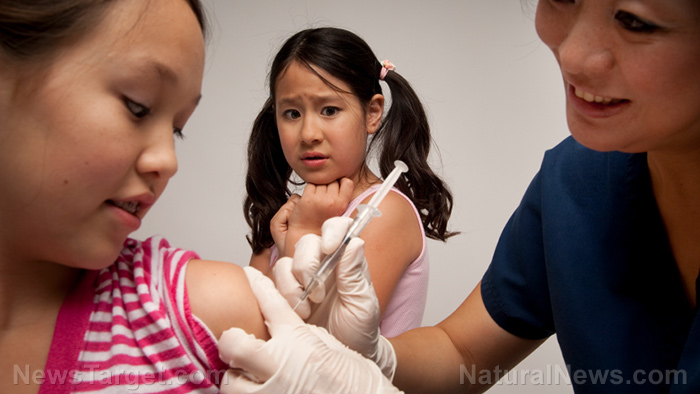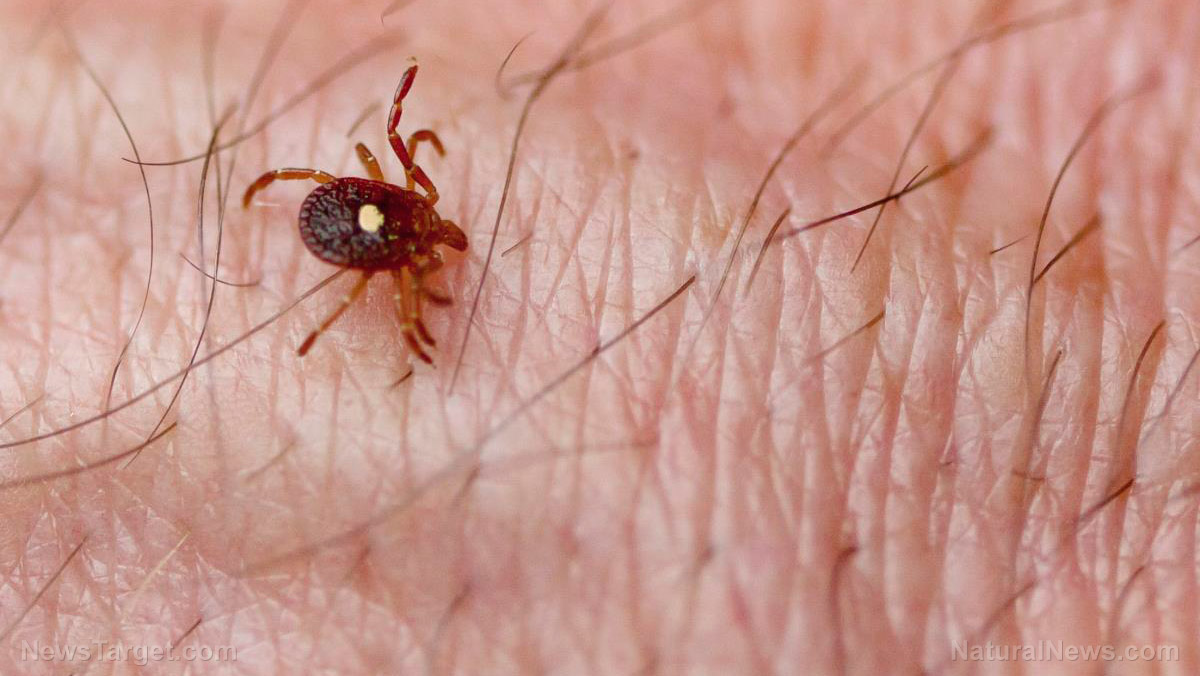Nearly 1.3 million adverse events linked to COVID-19 vaccines, reveal VAERS reports
05/25/2022 / By Zoey Sky

The Centers for Disease Control and Prevention (CDC) on Friday, May 20, released new data showing a total of 1,268,008 reports of adverse events linked to the Wuhan coronavirus (COVID-19) vaccines.
The reports were submitted between December 14, 2020 and May 13, 2022 to the Vaccine Adverse Event Reporting System (VAERS), the primary government-funded system for reporting adverse vaccine reactions in America.
Despite the alarming number of cases linked to coronavirus vaccines, the CDC signed off on a third booster dose for children aged five to 11.
The VAERS data shows a total of 28,141 reports of deaths, which points to an increase of 173 over the previous week; and 230,364 serious injuries, which has gone up by 1,887 compared to the previous week.
Overall, there were 6,859 additional total adverse events reported to VAERS over the previous week.
With the exception of foreign reports to VAERS, 817,538 adverse events were reported in the U.S. between December 14, 2020, and May 13, 2022. The reports include 12,961 deaths and 82,544 serious injuries.
Foreign reports refer to reports foreign subsidiaries send to vaccine manufacturers in the country. Under Food and Drug Administration (FDA) regulations, if a manufacturer is notified of a foreign case report that describes an event that is both serious and is not documented on the product’s labeling, the manufacturer is required to submit the report to VAERS.
Out of the 12,961 deaths in the U.S. reported as of May 13, 16 percent occurred within 24 hours of vaccination; 20 percent occurred within 48 hours of vaccination; and 59 percent occurred in individuals who experienced an onset of symptoms within 48 hours of inoculation. (Related: The HighWire: COVID booster drives in other countries contributed to HIGHER MORTALITY rates.)
Around 581 million coronavirus vaccine doses had been administered in the U.S. as of May 13. This includes 343 million doses of Pfizer, 219 million doses of Moderna and 19 million doses of Johnson & Johnson (J&J).
Every Friday, VAERS publishes vaccine injury reports received by a specified date. All reports submitted to VAERS must then be investigated thoroughly before a causal relationship can be confirmed. However, VAERS has historically been shown to report only one percent of actual vaccine adverse events.
Meanwhile, VAERS data for five- to 11-year-olds as of May 13 revealed that:
- There had been 10,745 adverse events, along with 279 cases rated as serious and five reported deaths.
- There had been 22 reports of myocarditis or inflammation of the heart muscle and pericarditis or inflammation of the outer lining of the heart. Over the previous week, reports of myocarditis and pericarditis had been removed by the CDC from the VAERS system in this age group without any explanation provided.
- There had been 43 reports of blood clotting disorders.
CDC vaccine advisory panel endorses Pfizer booster dose for kids aged 5 to 11
On Thursday, May 19, the CDC’s independent vaccine advisory panel endorsed a third dose of the Pfizer-BioNTech COVID-19 vaccine for children ages five to 11.
CDC Director Dr. Rochelle Walensky signed off on the Advisory Committee on Immunization Practices (ACIP) recommendation. This means healthcare workers can now start administering the third dose of COVID-19 boosters.
The ACIP recommendation came two days after the FDA granted Pfizer’s request for emergency use authorization (EUA) of a single booster dose for the same age group after claiming that the third shot should be administered at least five months after the initial two-dose primary series with the Pfizer vaccine.
The FDA granted the EUA without meeting with its vaccine advisory panel of independent experts to discuss Pfizer’s data on children aged five to 11. Instead, the authorization was based on a study subset of only 67 children who exhibited higher antibody levels a month after being given a booster dose.
Along with the small study subset for the Pfizer booster, the FDA granted EUA for the boosters even though data indicated showing higher infection rates among fully vaccinated children in the five-to-11 age group compared to unvaccinated children.
Additionally, there are still no studies testing the efficacy of the vaccine against the current dominant BA.2 COVID-19 variant. There are also two new studies that reveal that for vaccinated individuals who are infected with the omicron variant, the infection provides better protection against future infections than a second booster dose.
The FDA said it did not identify any new safety concerns and that the children in the trial experienced the same mild side effects others did after getting a booster dose.
A subset of only 67 children is too small to effectively detect potential adverse events like myocarditis. It also remains to be seen how rapidly any protection provided wanes because trial participants were not followed beyond 28 days.
Visit Vaccines.news for more news related to COVID-19 vaccines.
Watch the video below to know how COVID-19 booster doses diminish the immune system.
This video is from the Rick Langley channel on Brighteon.com.
More related stories:
COVID-19 vaccines more likely to kill people than save lives, research reveals.
Sources include:
Submit a correction >>
Tagged Under:
Big Pharma, biological weapon, boosters, CDC, covid-19, FDA, health freedom, pandemic, pharmaceutical fraud, spike protein, vaccine damage, Vaccine deaths, Vaccine injuries, vaccine wars, vaccines, VAERS
This article may contain statements that reflect the opinion of the author
RECENT NEWS & ARTICLES
COPYRIGHT © 2017 CDC NEWS


















